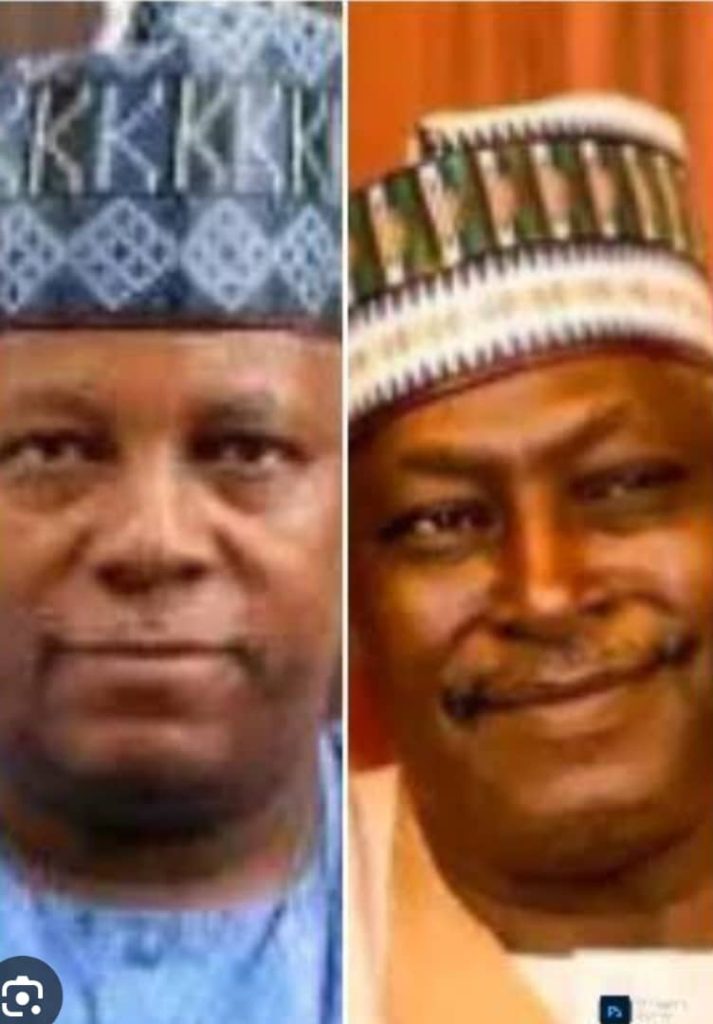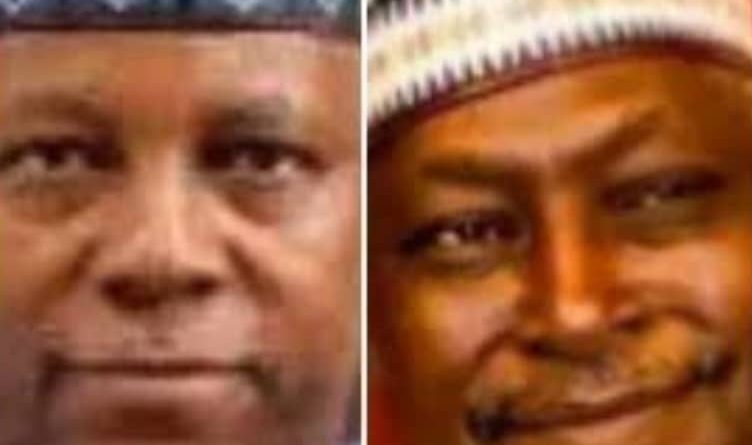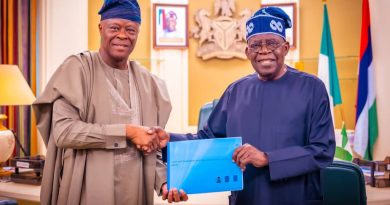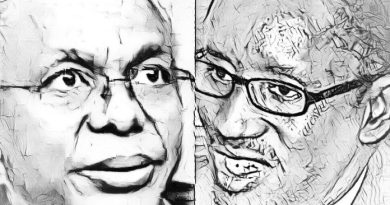Kashim Shettima: Former SGF Babachir Lawal Still Frustrated Over Muslim-Muslim Ticket-By James Bwala
Former Secretary to the Government of the Federation (SGF), Babachir Lawal, recently commented on the political dynamics surrounding Kashim Shettima’s role as Nigeria’s vice president. Lawal described Shettima as a “spare flat tire,” a metaphor implying redundancy or lack of significance within the political framework. This characterization appears rooted in frustration over President Bola Tinubu’s decision not to run along with him (Babachir Lawal) in 2023, highlighting intra-party tensions and personal ambitions that influenced electoral strategies.
Lawal’s continuous remarks can be interpreted as reflecting broader contestations within Nigeria’s ruling party, where key figures vie for influence and recognition. The refusal to consider him and the choice to go with Kashim Shettima as vice presidential candidate in 2023 arguably triggered dissatisfaction among certain elements, with Lawal’s statement emblematic of this discontent. I believe that Babachir Lawal’s critique of Vice President Kashim Shettima’s role in an interview recently with’ PUNCH’ Newspapers, where he allegedly said that’ Kashim Shettima is just busy attending weddings and probably condolence visits, reveals how personal grievances intersect with political maneuvering, shaping narratives around leadership choices in Nigeria’s evolving democratic landscape.
Babachir may continue to preach this gospel and the group of speculators like him. But for the record and contrary to widespread speculation, Vice President Kashim Shettima frequently represents President Bola Tinubu on various official occasions both within Nigeria and internationally. While some narratives suggest that Shettima’s role is largely symbolic or limited to domestic engagements, evidence indicates that he acts as a robust proxy for Tinubu in diplomatic and political functions abroad. This delegation of duties aligns with strategic governance practices where a vice-presidential figure assumes representational responsibilities, thereby extending the president’s reach without necessitating his physical presence.

Kashim Shettima’s involvement in international forums underscores his active participation in advancing Nigeria’s foreign policy objectives under Tinubu’s administration. By attending summits and bilateral meetings, he not only conveys presidential mandates but also fosters investor confidence and diplomatic relations on behalf of the government. Such engagements reflect an operational dynamic wherein Shettima embodies the administration’s policy vision beyond national borders, challenging assumptions that his role is merely ceremonial.
The presumption that Shettima rarely represents Tinubu is inaccurate given documented instances of his frequent representation both domestically and internationally. This practice serves practical governance functions by maintaining continuous political engagement while allowing Tinubu to focus on critical national affairs. Recognizing Shettima’s substantive representational role provides a clearer understanding of executive collaboration within Nigeria’s current political landscape.
The VP’s effective representation in these roles is not only a testament to his political acumen but also an indication of the trust and confidence Tinubu places in his vice-presidential partner. His active engagement in these capacities highlights the strategic delegation of duties within Tinubu’s administration. His ability to navigate complex political landscapes and articulate the administration’s policies effectively further cements his role as a pivotal figure in Nigeria’s diplomacy and governance. Shettima’s presence at these gatherings not only reinforces the administration’s commitment to international cooperation but also exemplifies a strategic approach to governance that leverages the strengths of its key leaders.
Kashim Shettima’s diplomatic engagements, therefore, not only enhance Nigeria’s international profile but also underscore the administration’s strategic use of its leadership team to achieve a broader impact on the global stage. By effectively managing these responsibilities, Shettima not only ensures continuity in governance but also strengthens Nigeria’s diplomatic ties and fosters economic partnerships. This approach not only amplifies Nigeria’s voice on the global stage but also demonstrates a well-orchestrated internal synergy that is crucial for the country’s socio-economic advancement.
It is evident that Shettima’s active representation of Tinubu in various international forums and diplomatic missions is a testament to the administration’s confidence in his capabilities and vision. Shettima’s adept handling of these roles also signals a seamless transition of responsibilities that ensures no vacuum is left in Nigeria’s representation. This strategic delegation underscores the administration’s commitment to leveraging Shettima’s diplomatic acumen and political insight, thereby reinforcing Nigeria’s influence in international affairs.
The VP’s presence at key international forums and bilateral meetings not only amplifies Nigeria’s voice but also fosters partnerships that are crucial for the nation’s economic and geopolitical goals. Moreover, Shettima’s diplomatic engagements often align with Tinubu’s strategic vision, ensuring continuity and coherence in Nigeria’s foreign policy initiatives. This strategic partnership not only demonstrates Tinubu’s trust in Shettima but also highlights their shared vision for Nigeria’s development and international relations. Through these efforts, Shettima effectively bridges the gap between domestic policy and international diplomacy, ensuring that Nigeria’s interests are consistently represented and advocated for on the world stage. This collaboration between Tinubu and Shettima highlights a pragmatic approach to governance, where responsibilities are shared to enhance efficiency and effectiveness in achieving Nigeria’s foreign policy objectives.
Indeed, on the contrary, Shettima’s role as a representative is not merely ceremonial but involves substantive engagement with international stakeholders, thereby reinforcing Nigeria’s commitment to global cooperation and sustainable development. By entrusting Shettima with these vital responsibilities, the administration not only ensures continuity in its international engagements but also cultivates a robust framework for achieving long-term diplomatic and economic objectives. Therefore, beyond what the former SGF sees and pitched his tent, beyond the rhetoric around Shettima’s engagements, weddings, or condolences, the partnership that denied him the opportunity to be vice president is standing tall against the storms.
James Bwala, PhD, writes from Abuja.




